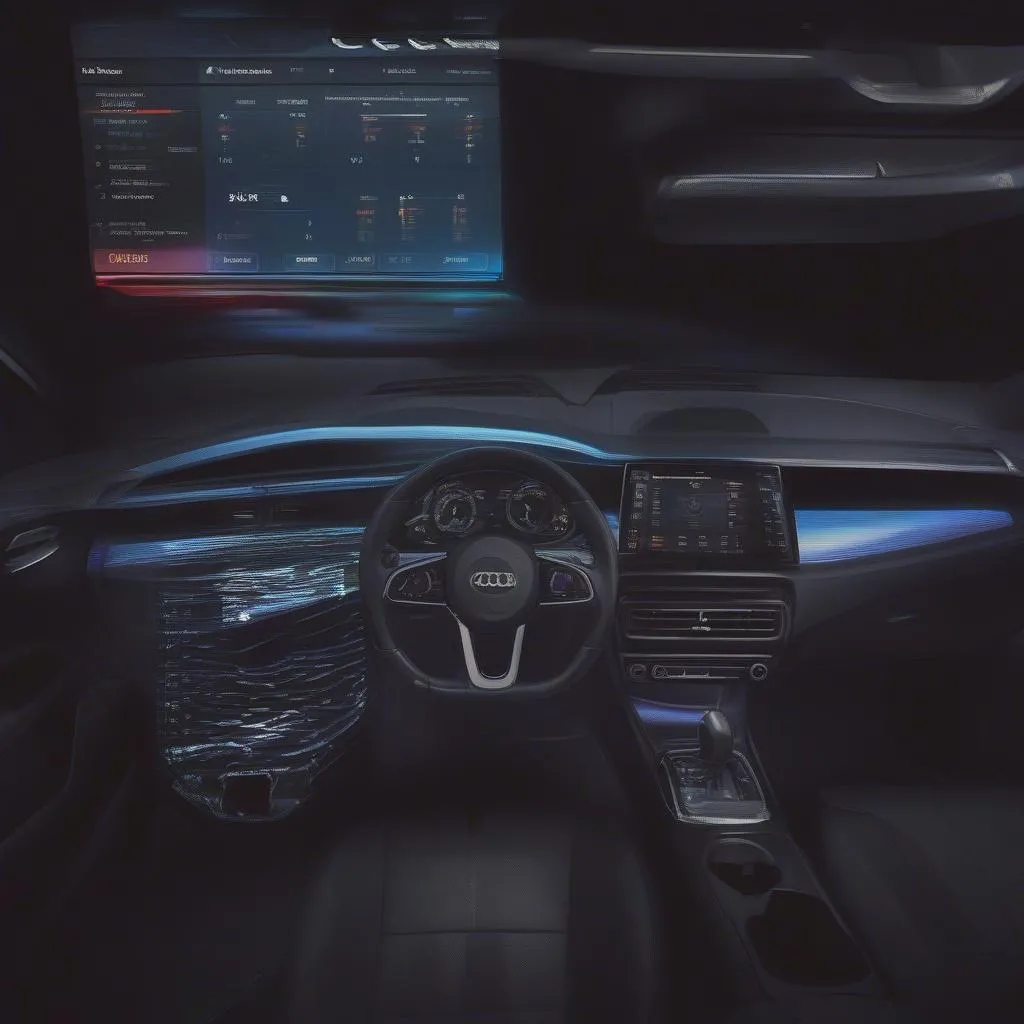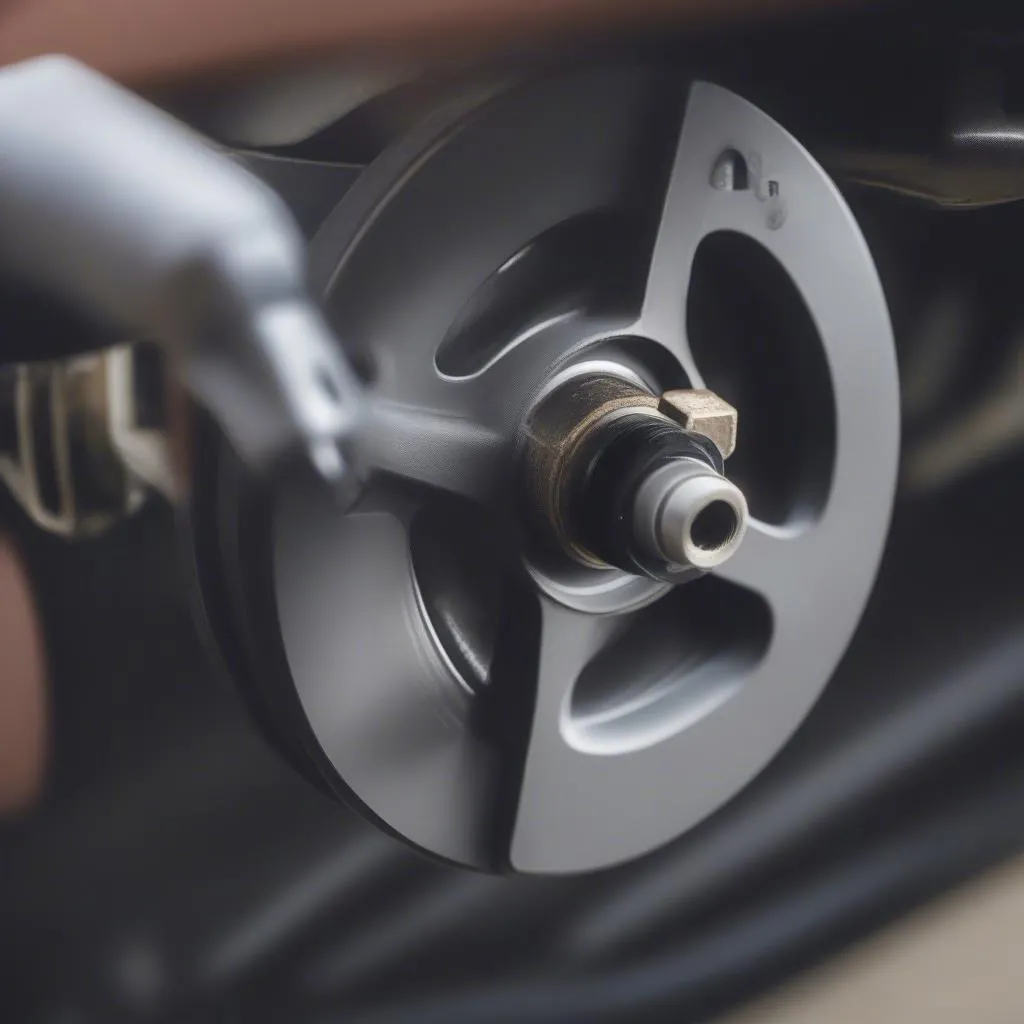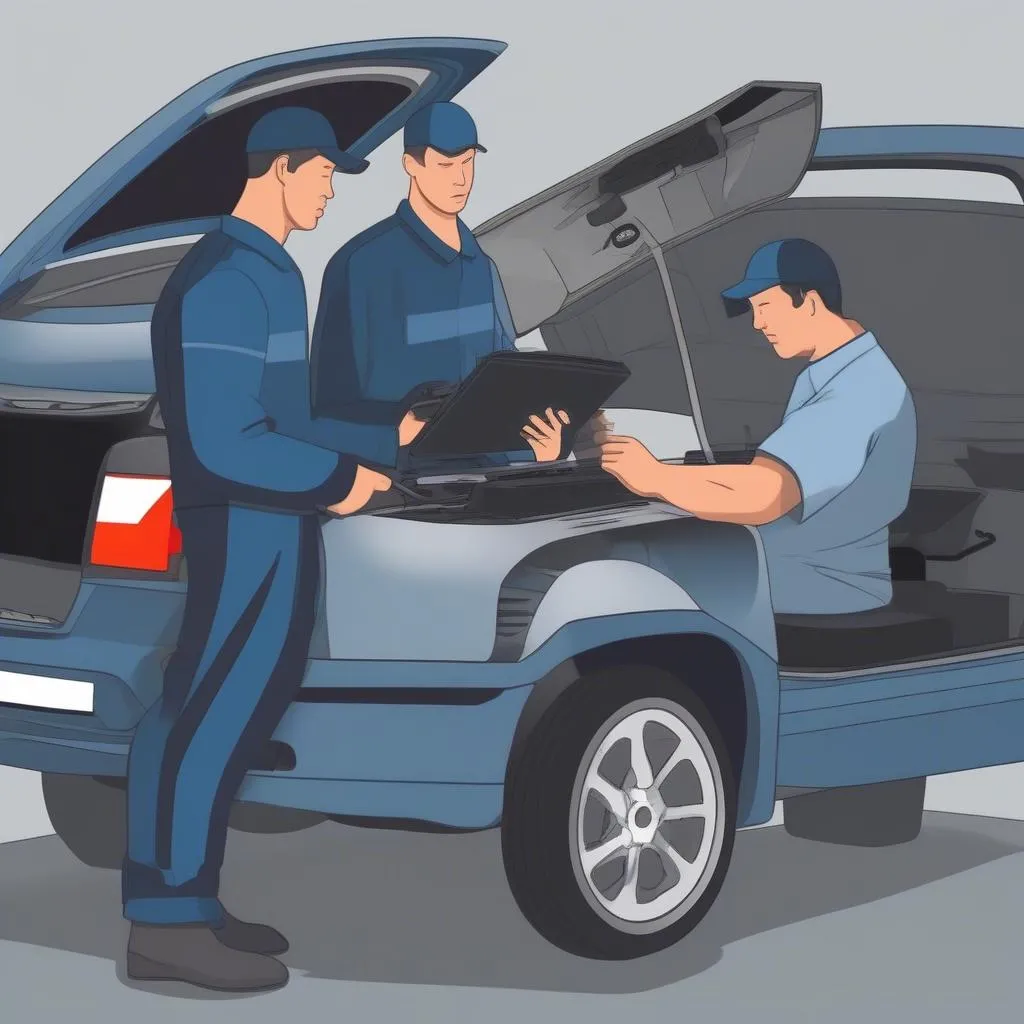It’s a stressful situation: you’re driving along, enjoying your commute, and suddenly, your ABS light flashes on your dashboard. Your heart skips a beat – what does it mean? What are you supposed to do? Don’t worry, we’re here to help!
Understanding the ABS Light
The ABS light, or Anti-lock Braking System light, is a vital indicator of a potential issue with your vehicle’s braking system. It’s essential to pay attention to this light and address any problems promptly. Think of it as a warning system for your car’s safety. It lets you know that something is amiss with the system designed to prevent your wheels from locking up during sudden braking, potentially saving you from a dangerous skid.
The Causes of the ABS Light Coming On
The ABS light can come on for a variety of reasons, ranging from a minor malfunction to a more serious issue. Here are some of the most common culprits:
1. Low Brake Fluid:
This is the most frequent cause for the ABS light to illuminate. The brake fluid level can decrease due to leaks, wear and tear on the brake pads, or even just evaporation over time. Imagine your car’s brakes as a hydraulic system, and the brake fluid is the lifeblood of the entire system. Low fluid levels affect the pressure and efficiency of the brakes, triggering the ABS light.
2. Faulty ABS Sensors:
ABS sensors are crucial components in the anti-lock braking system. They constantly monitor the speed of your car’s wheels and send data to the ABS control module. If a sensor malfunctions, the ABS system won’t function as intended, and the light will turn on.
3. Problems with the ABS Control Module:
The ABS control module is the brain of the ABS system. It receives data from the sensors, calculates the appropriate braking force, and sends signals to the brake actuators to control the brakes. A faulty ABS control module can lead to an ABS light coming on and possibly malfunctions in the system.
4. Wiring Problems:
Worn out, damaged, or corroded wiring between the ABS sensors, the ABS control module, and the brake actuators can lead to problems with the ABS system. The light will typically illuminate when the system detects a fault in the wiring, preventing it from functioning correctly.
5. Faulty Wheel Speed Sensors:
Imagine your car’s wheel speed sensors as the eyes of the ABS system. They send crucial information about the speed of each wheel to the ABS control module, which then decides how to apply the brakes to prevent locking. A faulty wheel speed sensor will throw off the entire system, resulting in the ABS light coming on.
6. Brake Actuator Issues:
Brake actuators are responsible for applying the braking force to each wheel. A malfunctioning brake actuator can cause problems in the braking system, ultimately leading to the ABS light turning on.
What to Do When the ABS Light Comes On?
The ABS light coming on is never a good sign, but it doesn’t always mean a catastrophic failure. However, it is crucial to take it seriously. Here’s what you should do:
- Pull over to a safe location: If it’s safe to do so, pull over to the side of the road as soon as possible.
- Check the brake fluid level: Consult your car’s owner manual for the correct location of the brake fluid reservoir. If the level is low, top it off with the appropriate type of brake fluid. Caution: Do not add brake fluid if the reservoir is already full!
- Have the ABS system inspected by a qualified technician: It’s essential to get your car checked by a professional mechanic to diagnose the problem and repair it. A mechanic can use a specialized tool called a “Dealer Scanner For European Cars” to access the ABS system’s diagnostic codes and determine the root cause of the problem.
Common Questions About the ABS Light:
1. Is it safe to drive with the ABS light on?
While it’s not ideal, driving a short distance with the ABS light on may be possible in some cases. However, it’s crucial to avoid excessive braking and driving cautiously. If the light remains on, it’s best to get the vehicle checked by a professional as soon as possible.
2. My ABS light came on, then went off. Is it OK to ignore it?
No! This is a dangerous sign. While it may be tempting to think the light is just a glitch, a temporary problem is not something you can ignore. The ABS light could turn on again when you least expect it, and it’s best to get the issue addressed by a mechanic.
3. What is a common cost to repair a problem with my ABS system?
The cost of repairing an ABS system can vary significantly depending on the specific problem and the make and model of your vehicle. A simple fluid flush could be inexpensive, while replacing the ABS control module can be costly.
Tips for Preventing ABS Problems:
- Regular maintenance: Maintain a regular schedule for brake fluid replacement, and inspect your brake system for any signs of wear or damage.
- Avoid sudden braking: This puts unnecessary stress on the ABS system and increases the chance of problems developing.
Need Help with Your ABS System?
If you are experiencing any problems with your ABS system, don’t hesitate to contact us. We have a team of qualified mechanics who can quickly diagnose and repair any ABS issues.
Related Articles:
- Why is my check engine light on?
- My car shimmies when accelerating – what’s wrong?
- What is an ABS scanning tool?
Let’s Connect!
Contact us via Whatsapp: +84767531508 to schedule a diagnostic test or learn more about our services. We offer 24/7 support to all our customers.
 abs light dashboard
abs light dashboard
 abs sensor
abs sensor
 abs scanner
abs scanner